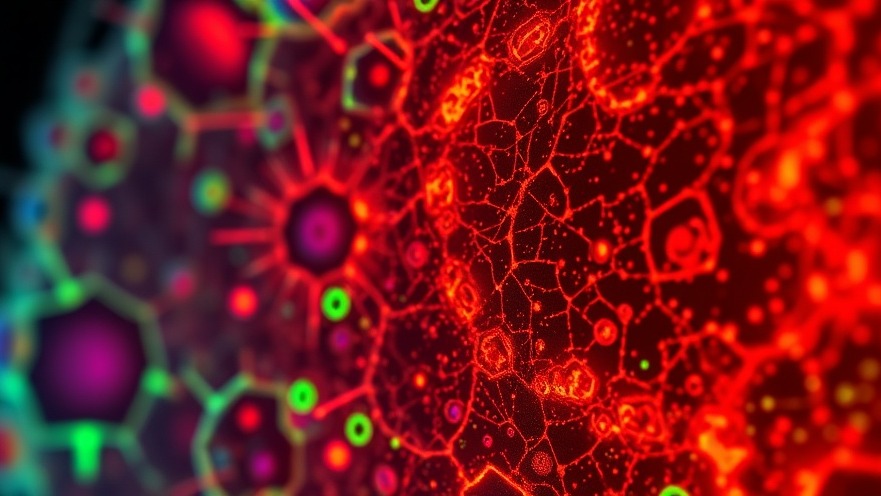
Revolutionizing Cancer Diagnostics: AI-Powered Microscopy
A recent breakthrough in pancreatic cancer research has emerged from the University of Arizona, promising to bridge the gap between advanced technology and clinical practice. Researchers have combined label-free optical microscopy with artificial intelligence (AI) to more accurately diagnose cancer phenotypes. This development is significant for concierge health practitioners who are looking to implement cutting-edge solutions in patient care.
Why Precision Medicine Matters
Precision medicine tailors treatment to individual patient characteristics, which could lead to better survival rates and improved quality of life. However, existing methods for identifying cancer phenotypes are often costly and complex, frequently requiring specialized tests that can be out of reach for some patients. The new technology addresses these challenges head-on by providing a faster, more affordable alternative.
Understanding the New Methodology
The research team utilized spatial transcriptomics, a technique that maps gene expression within tissues, along with a novel use of label-free optical microscopy. This microscopy captures images without the need for dyes or chemical tags, relying instead on natural biomarkers and fluorescence. By measuring signals like second harmonic generation from collagen, the researchers were able to gain crucial insights into the tissue structure.
The Role of AI in Advancing Medical Diagnoses
A deep learning algorithm was trained using the label-free images to predict tissue phenotypes with over 89% accuracy. This method of AI-powered analysis holds tremendous potential to reshape how concierge practitioners identify and treat various forms of cancer. The AI’s ability to analyze complex data quickly and with high precision reduces the dependency on expensive molecular tests.
Implications for Concierge Health Practitioners
The implications of this innovation are profound. Concierge health practitioners represent a segment of healthcare that prides itself on personalized patient care. By incorporating AI-driven diagnostics into their practices, they can ensure that patients receive tailored therapeutic strategies based on more reliable and accessible information.
Future Perspectives in Precision Medicine
As advancements like this make precision medicine more accessible, we can anticipate a shift in treatment paradigms. Future tools could further streamline the identification process of cancer phenotypes, enhancing the quality of patient care while significantly reducing costs. The journey towards more informed and personalized cancer therapies continues to evolve with technological breakthroughs leading the way.
Practical Insights: What Practitioners Should Consider
For practitioners keen on adopting these technologies, staying informed about AI in diagnostics is crucial. Regular engagement with research outlets, attending relevant workshops, and collaborating with tech innovators can help bridge the gap between healthcare and technology.
Conclusion: Embracing the Future of Cancer Care
As concierge health practitioners look ahead, integrating AI and advanced microscopy will not only keep them at the forefront of medical science but also improve patient outcomes dramatically. The union of technology and patient care is not a distant future—it has arrived. To provide patients with the best possible care, now is the time to embrace these innovations.
 Add Row
Add Row  Add
Add 




Write A Comment